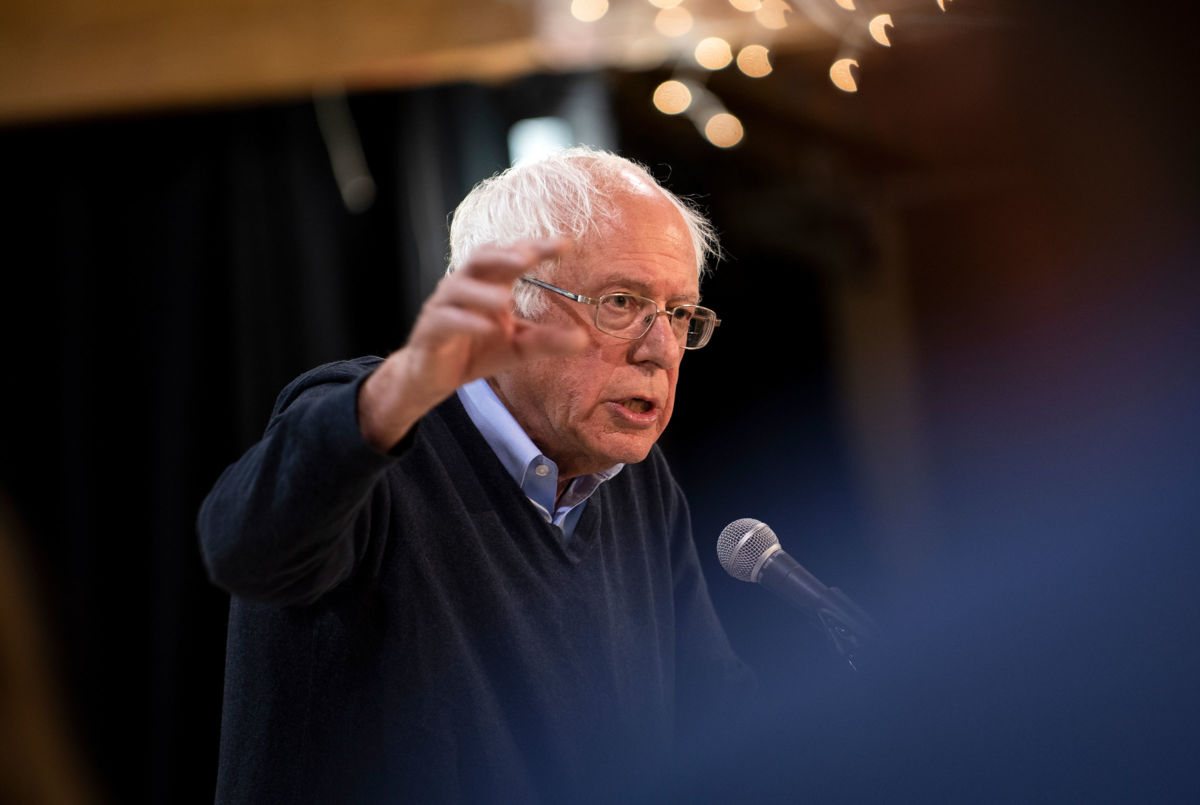Sen. Bernie Sanders on Saturday unveiled the public education plan for his 2020 presidential campaign, calling for “a transformative investment in our children, our teachers, and our schools, and a fundamental re-thinking of the unjust and inequitable funding of our public education system.”
The senator’s “Thurgood Marshall Plan for Public Education” is named for the lawyer who successfully argued Brown v. Board of Education—the landmark U.S. Supreme Court case that made racial segregation of public schools unconstitutional in 1954—before he joined the court as its first black justice more than a decade later.
Recalling Marshall’s words from a dissenting opinion for Milliken v. Bradley—a case the high court ruled on in 1974—Sanders tweeted Saturday that he aims to “guarantee every person in our country a quality education as a fundamental human right.”
Thurgood Marshall said that all children have a right “to an equal opportunity to reach their full potential as citizens.”
In my view, the only way to accomplish that goal is to guarantee every person in our country a quality education as a fundamental human right.
— Bernie Sanders (@BernieSanders) May 18, 2019
According to the campaign page that lays out Sanders’s plan, his broad goal is to address “the serious crisis in our education system by reducing racial and economic segregation in our public school system, attracting the best and the brightest educational professionals to teach in our classrooms, and reestablishing a positive learning environment for students in our K-12 schools.”
Improving education on a national scale requires, in the senator’s view, banning new for-profit charter schools. As Common Dreams reported Friday, he is the first 2020 Democratic primary candidate to call for such a ban, and his proposal comes as Education Secretary Betsy DeVos is working to increase the number charter schools.
The charter school moratorium is just part of the 10-point plan the senator officially put forward Saturday:
- Combating Racial Discrimination and School Segregation
- End the Unaccountable Profit-Motive of Charter Schools
- Equitable Funding for Public Schools
- Strengthen the Individuals with Disabilities Education Act (IDEA)
- Give Teachers a Much-Deserved Raise and Empower them to Teach
- Expand After-School/Summer Education Programs
- Universal School Meals
- Community Schools
- School Infrastructure
- Make Schools a Safe and Inclusive Place for All
Some of the specific proposals include boosting federal funding for community-driven desegregation efforts; expanding access to English as a second language instruction; increasing accountability for existing charter schools; and ensuring “schools in rural communities, indigenous communities, Puerto Rico, and other U.S. territories receive equitable funding.”
Waleed Shahid of Justice Democrats said on Twitter that the presidential candidate’s plan “seems like the most aggressive national anti-segregation policy” proposed in decades, while others noted how it comes in “stark contrast” to the past positions of former Vice President Joe Biden, who is also seeking the Democratic nomination for president.
Bernie’s plan seems like the most aggressive national anti-segregation policy put forward since the 1970s.
“The plan would try to revive the force of the federal government’s efforts in the 1950s and 1960s to end the separation of students by race.”https://t.co/BBp5dcs2g2
— Waleed Shahid (@_waleedshahid) May 18, 2019
Sanders wants to increase funding for desegregation programs, including allowing the gov’t to fund busing, and enforce desegregation orders. The plan is aimed at combating increasing levels of isolation among black and Latino students: https://t.co/wPiFdFuHTw
— Molly Hensley-Clancy (@mollyhc) May 18, 2019
Under Sanders’s plan, the federal government would spend $5 billion annually to expand access to summer and after-school programs, teen centers, and tutoring—and another $5 billion so community schools can “provide a holistic, full-service approach to learning and the well-being of our young people” through dental and mental health care, substance abuse prevention, community and youth organizing, job training classes, art spaces, GED, and ESL classes.
On the educator side, Sanders calls for increasing teacher pay “by working with states to set a starting salary for teachers at no less than $60,000 tied to cost of living, years of service, and other qualifications; and allowing states to go beyond that floor based on geographic cost of living.”
If we are a nation that can pay baseball players hundreds of millions of dollars, don’t tell me we can’t afford to pay teachers the salaries they deserve. pic.twitter.com/pQVix0iX9a
— Bernie Sanders (@BernieSanders) May 18, 2019
Sanders introduced his public education plan in a speech in South Carolina on Saturday. Watch:
I am proud to introduce my Thurgood Marshall Plan for A Quality Public Education for All. Read our plan to transform our education system here: https://t.co/3XojUVewly https://t.co/24uvOCjd5x
— Bernie Sanders (@BernieSanders) May 18, 2019
Our most important fundraising appeal of the year
December is the most critical time of year for Truthout, because our nonprofit news is funded almost entirely by individual donations from readers like you. So before you navigate away, we ask that you take just a second to support Truthout with a tax-deductible donation.
This year is a little different. We are up against a far-reaching, wide-scale attack on press freedom coming from the Trump administration. 2025 was a year of frightening censorship, news industry corporate consolidation, and worsening financial conditions for progressive nonprofits across the board.
We can only resist Trump’s agenda by cultivating a strong base of support. The right-wing mediasphere is funded comfortably by billionaire owners and venture capitalist philanthropists. At Truthout, we have you.
We’ve set an ambitious target for our year-end campaign — a goal of $133,000 to keep up our fight against authoritarianism in 2026. Please take a meaningful action in this fight: make a one-time or monthly donation to Truthout before December 31. If you have the means, please dig deep.
